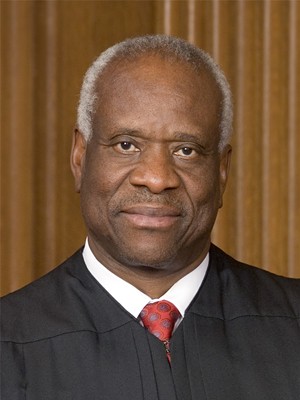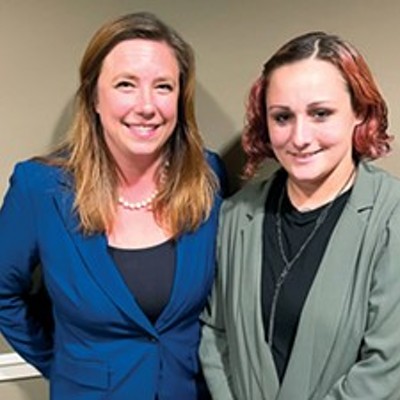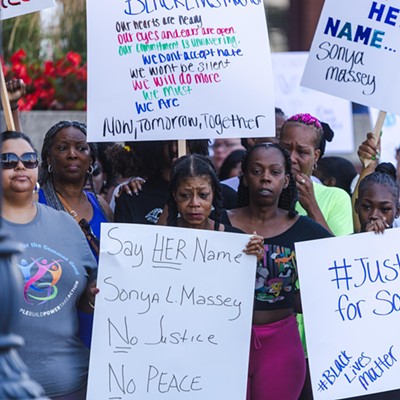The worst kind of graft is perfectly legal.
I've been thinking about that these past few weeks as revelations are brought forth about gifts U.S. Supreme Court Justice Clarence Thomas received from a rich buddy.
Let me preface my criticisms of the jurist by saying I often agree with his decisions. But that doesn't absolve him from the shady things he has done.
Thomas and his wife, Ginni, received luxury vacations and private jet travel from Texas real estate magnate Harlan Crow. The justice contends he did nothing wrong and that these were just gifts from a friend.
I don't doubt that Thomas and his wife consider Crow to be a "dear friend." But a more appropriate question might be whether the billionaire would be chumming around with Thomas if he didn't happen to be a Supreme Court justice.
Democrats in Congress are squawking about how wrong this relationship is. What is happening here is wrong – but probably not illegal.
When I was a young reporter in Galveston, Texas, the managing editor had a "Wheels" column in which he wrote a weekly love note to the auto industry.
The price of this journalistic prostitution? Every week, a car company would send him a new vehicle to test drive along with a press release espousing the model's virtues.
His teenagers drove them to school. And even when they sent him a dog of a car with major mechanical issues, he wrote about how swell it was.
"There is no such thing as a bad car," he told a group of young reporters who asked about the practice. We rolled our eyes.
Most journalists would say what he was doing wasn't ethical. The readers were never informed of this cozy relationship. But it's also the kind of graft that is legal.
If pressed as to why he did it, I suspect he would have justified his actions by pointing to his salary and saying he deserved some sort of perk.
Thomas, who earns $184,000 a year as a Supreme Court justice, could make a similar claim, noting that he would make many times that in private practice.
That justification reminds me a bit of one given by another Supreme Court justice, Ray I. Klingbiel, who served on Illinois' highest court in the 1960s. Before that, he was East Moline's mayor.
Sometime in 1966, Ted Isaacs, a member of then-Gov. Otto Kerner's cabinet and a wheeler-dealer, managed to put himself in a position to allocate stock in the politically connected Civic Center Bank in Chicago and Klingbiel received 100 shares.
At the time, the state's high court was considering the dismissal of a 35-count felony indictment accusing Isaacs of bilking the Illinois treasury. Shortly thereafter, the court unanimously affirmed the dismissal of Isaacs' felony indictments in an opinion written by Klingbiel.
According to the book Illinois Justice, by Kenneth Manaster, Klingbiel kept his 100 shares in a dresser drawer. Klingbiel insisted that the stock was merely a campaign contribution. But it was given after he had been elected and in the form of a stock certificate, and it had been given to him by an associate of Isaacs, who had a case before the court.
"There is no doubt in my mind Isaacs was trying to influence the court with his actions," Manaster told me.
Manaster attributes Klingbiel's transgressions to the Illinois political culture that he had been reared in. Klingbiel served as the Republican mayor of East Moline for six years and before that worked as the city attorney. There were few regulations on campaign contributions in those days.
But that strikes me as a child's excuse: "Everybody's doing it." Someone with a better moral compass would have known better.
Future U.S. Supreme Court Justice John Paul Stevens was appointed chief counsel to the five-member commission that investigated the allegations of wrongdoing.
Stevens was quoted in a 1969 Associated Press article saying that "Chief Justice Roy J. Solfisburg, Justice Ray I. Klingbiel and Theodore J. Isaacs are guilty of gross impropriety."
But neither Solisburg nor Klingbiel was ever criminally charged. "The short answer is they never could prove they took a bribe to the degree necessary needed in court," Manaster said.
Stevens insisted during his 1975 confirmation that he never would have been nominated for the Supreme Court if not for the work he had done investigating Klingbiel and Solfisburg.
One honest man rose as two dishonest ones fell.
The episode ended with Klingbiel retiring and Solfisburg resigning from the state Supreme Court.
Klingbeil's final days were sad ones, Manaster said. He remained bitter about what he described as a "political push" to get him off the court.
Shaken and sorrowful, Manaster said Klingbiel told one member of the commission, he knew in his heart he was not a crook, "but I was a damn fool."
Will Justice Thomas have such a revelation? Don't hold your breath.
Scott Reeder, a staff writer for Illinois Times, can be reached at [email protected].
























